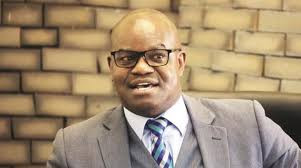
SURVIVORS and victims of the Gukurahundi massacres in the 1980s have warned the government not to dictate how the emotive issue should be dealt with since they are still alive to speak for themselves.
President Emmerson Mnangagwa will officially launch the Gukurahundi hearings at the Bulawayo State House tomorrow.
Charles Thomas, a survivor of the Gukurahundi atrocities, said it was unfortunate that the government had decided to go it alone without even consulting them to ensure the country’s dark past is not distorted.
Thomas, who still bears the scars of the Gukurahundi atrocities, said he was not even aware that there would be a launch of the hearings tomorrow.
“That is news to me. I was not aware that there was going to be a launch. Why are they leaving us out?”
“We are supposed to be there during the launch so that we tell them what we want done. We want an apology and compensation. The government should take this matter seriously.”
Added Thomas: “They cannot torture us and come back to tell us how they want the matter dealt with. Some of us are still nursing injuries sustained during the Gukurahundi era.
“Every month, I have to fork out US$47 to import my medication from South Africa. It’s now more than 40 years and we are still talking about the issue. I am poor because of this after losing all my property.”
- Ziyambi’s Gukurahundi remarks revealing
- Giles Mutsekwa was a tough campaigner
- New law answers exhumations and reburials question in Zim
- Abducted tourists remembered
Keep Reading
He said he had visible scars of torture by members of the North Korea-trained 5 Brigade.
Thomas said he periodically suffers from a migraine headache as a result of the beatings by the 5 Brigade members.
“What will these chiefs do? Some of them were young during Gukurahundi. I am a victim and survivor together with my late chief. What can these chiefs do when they were given vehicles?”
Zipra Association deputy spokesperson Joakim Moyo said they were the victims and survivors of the atrocities and underscored the need for the government to face them rather than looking for other people elsewhere.
“We have a 15-page book guideline detailing what is supposed to be done when dealing with the Gukurahundi issue, which we presented under Matabeleland collective,” he said.
“We are surprised that the were totally ignored. One of the issues highlighted in the guideline is that we have said that there are low-hanging fruits such as the Zipra properties which need to be returned to us as the rightful owners as a way of resolving the matter. There is no need to discuss that.”
He said there were human bones scattered across the Matabeleland region as a result of the killings.
“Let the bones speak for themselves and guide us what needs to be done. We have our own culture of handling such issues when people would have been killed in such unforeseen circumstances, not to sit down around the table to discuss such issues. That is taboo!”
He said some of those who were at the forefront as perpetrators required a cleansing ceremony for spilling innocent blood.
“Some of the perpetrators have tried to come and apologise on their own because they are being hounded by the spirit of the dead and they have been chased away,” Moyo said.
“They cannot wait for the government because their families are the ones who suffer from circumstances such as bad omen.”
Former Ntabazinduna chief Felix Nhlanhlayemangwe Ndiweni said one could not find the word Gukurahundi anywhere in the world besides “it is a word that is hanging in the air without a legal meaning”.
“This is a public relations exercise, where on the other hand we will be going into it in the legal fraternity that is Ndebele genocide, Ndebele war crimes and Ndebele crimes against humanity,” he said.
“When we go into that, we will be properly dealing with the violence and the slaughter that happened between 1983 and 1987. This public relations exercise is trying to make the Ndebele people forget what happened.”
Ndiweni said they would engage South Africa.
“The current government of Zanu PF will not stop engagement of this matter into a higher format no matter how they can package this public relations exercise,” he said.
Information, Publicity and Broadcasting Services permanent secretary Ndavaningi Mangwana said the role of chiefs as community leaders was already in the law and the Constitution.
“Why would we need a law to allow the same chiefs to engage with their same communities? Remember, it is the local chief or traditional leader that is engaging their own community,” Mangwana said.
The late former president Robert Mugabe deployed the 5 Brigade to Matabeleland and Midlands provinces to quash an insurgency, although critics say the plan was a quest to establish a one-party State.
Over 20 000 civilians were killed, according to the Catholic Commission for Justice and Peace in Zimbabwe.










